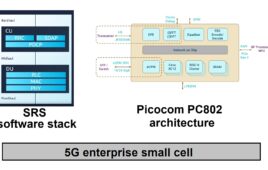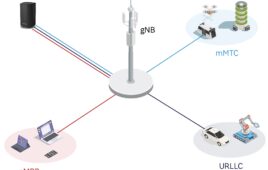Despite rave reviews from other operators, the bundling strategy isn’t a favorite of Verizon Wireless head Ronan Dunne.
Speaking at an investor conference on Wednesday, Dunne reported Verizon is forging ahead with development of its 5G fixed wireless broadband product, but noted the carrier isn’t necessarily looking to put it in a bundle package with its other services. That’s because triple- and quad-play packages have more value in markets where operators are trying to drive penetration – and that isn’t the case in the United States, he said.
“If I take Spain versus the U.K., for an example, when Telefonica in Spain launched their Fusion bundled product, the primary driver was pay TV – 22 percent of households had to pay TV service in Spain four, five years ago. In the U.K. at the same time it was 66 percent,” he explained. “So actually the opportunity was about for the penetration of one of the elements of the bundle that wasn’t.”
According to CTIA figures, wireless penetration stood at just over 120 percent in 2016. And as Dunne pointed out, “it’s not like there isn’t cable and, you know, fiber to the home already heavily deployed in the U.S.”
Another issue with bundling, Dunne said, is that it ties two completely separate product roadmaps together.
“In competitive markets, and the U.S. is one, if you’ve got real choice in the individual products, the cost of bundling is that you end up taking the second-best wireless product and you map it to the third-best TV bundle in order to get the cheapest broadband connection or fiber connection. No wonder you get $5 off at the end of the bill,” Dunne observed. “Our point of view is focusing on being the preeminent wireless carrier in the marketplace is a very, very strong play to give the customers real choice. I think as we broaden out our segmentation and broaden out our proposition mix that will allow us to do that even more effectively.”
But other operators – broadband and wireless alike – seem to disagree with Dunne about the benefits of bundling.
AT&T talked bundling during its most recent earnings report, indicating it is losing ground in areas where competitors bundle, but expects that to change as its fiber build continues and it, too, gains the ability to bundle.
Sprint, which has been at the center of merger chatter lately, has also acknowledged the appeal of cable because it would offer opportunities to bundle products. That in turn, CEO Marcelo Claure said, can help bring down churn levels.
Comcast in its second quarter earnings report heralded the success of its bundling strategy, noting 70 percent of its residential customer base subscribes to at least two products. Company executives also pointed out Comcast only has about 45 percent broadband penetration while the overall market sees around 75 percent of homes subscribing to internet access.



